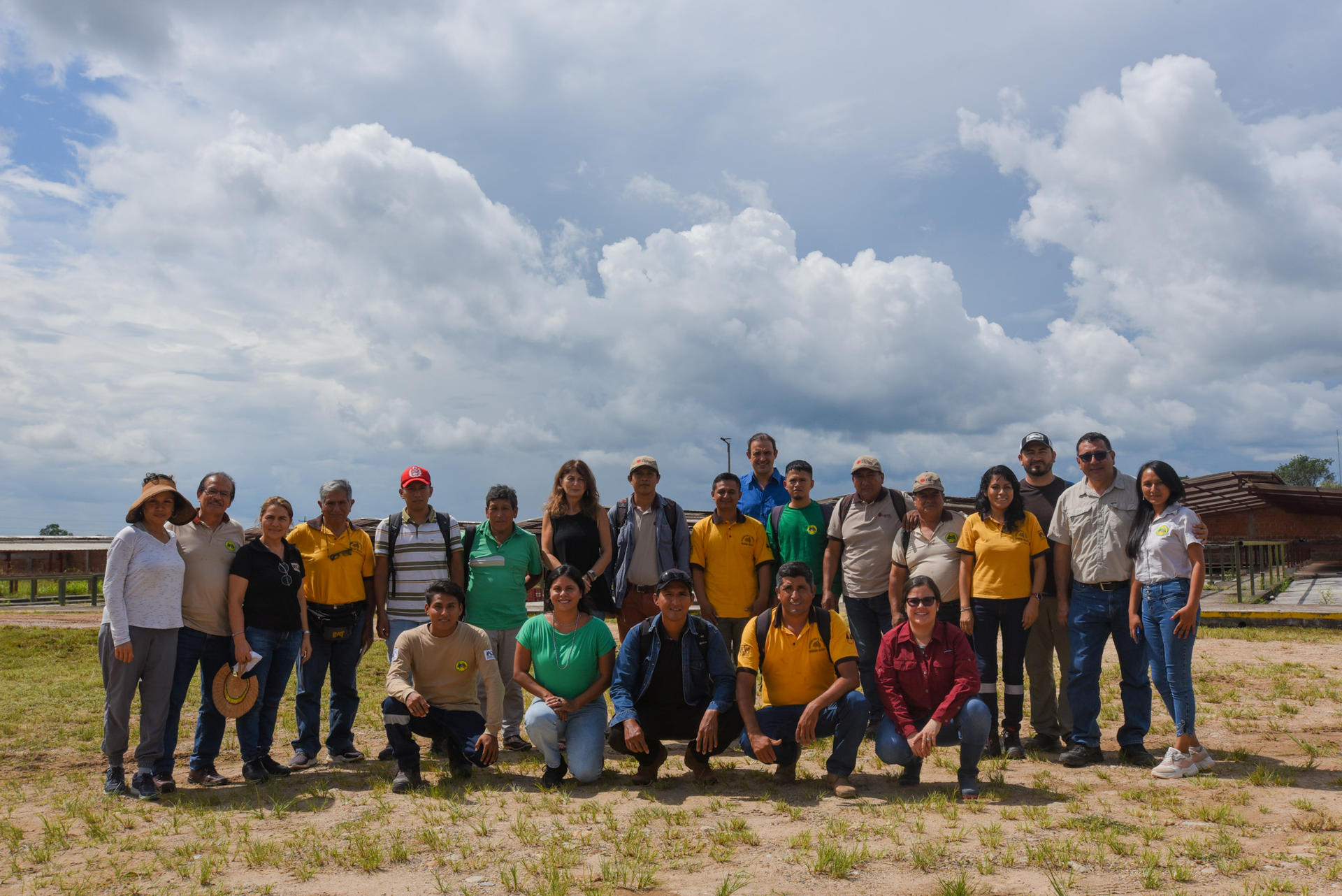From the Field Peruvian producers are banking on cacao with the aroma of sustainability
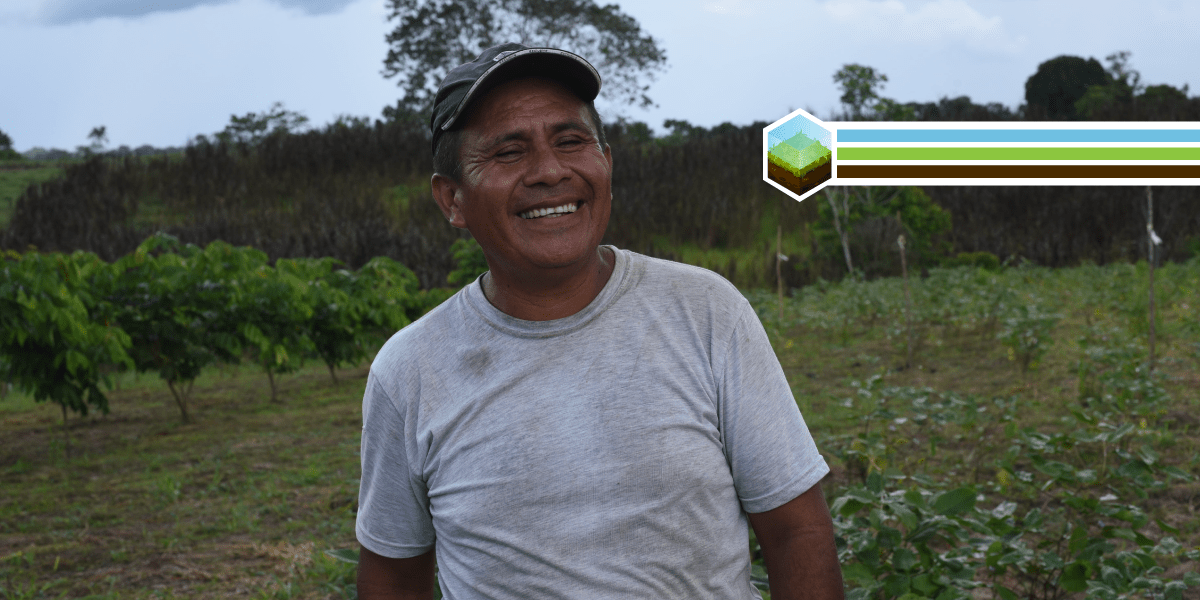
The Ucayali rainforest region, located in Peru, has managed to position itself as the third largest cacao-growing area in the country, with approximately 20,000 hectares dedicated to this activity. However, behind this sweet success lies a worrying shadow due to the increasing rates of deforestation and soil degradation, which endanger the fauna, flora and cacao production in the region. In this context, it is critical to seek a reconciliation with nature and adopt practices that minimize the use of resources, mitigate negative impacts and ensure a sustainable future for this important cacao industry.
On doña Lily's farm, the trees of the Amazon rainforest tower imposingly in all directions, barely allowing the sun's rays to filter through. Vibrant greenery adorns the landscape, while the buzzing of insects and birdsong create a background melody. The weather is indecisive and capricious. The scorching, sweltering sun intermingles with the sticky humidity of rain that clings to the skin in the form of sweat. Although the summer season is approaching in the Ucayali region of Peru, gray clouds appear in a matter of seconds, and raindrops transform the land into a muddy, slippery terrain where - even with boots - it is difficult to walk. Doña Lily has dedicated her whole life to the protection of the Amazon. First as a lawyer, a profession that was part of her life for thirty years, and now as an environmental advocate, on her own 42-hectare farm in the middle of the Amazon rainforest. By her own account, she has left behind the sword of law, to wield the machete and the hoe; and since 2012, her farm has become a foundation that promotes organic agriculture and the preservation of nature.
Lily, who is 68 years old, finds it difficult to walk the seventy-minute distance to the cacao farm, under the relentless sun due, in part, to deforestation. However, she continues to care for her farm, and thanks to her foundation, she has received volunteers from around the world to help her maintain and preserve this place, which a year ago - when she left behind the chaos of the city in search of the serenity of the rainforest - has become her home.

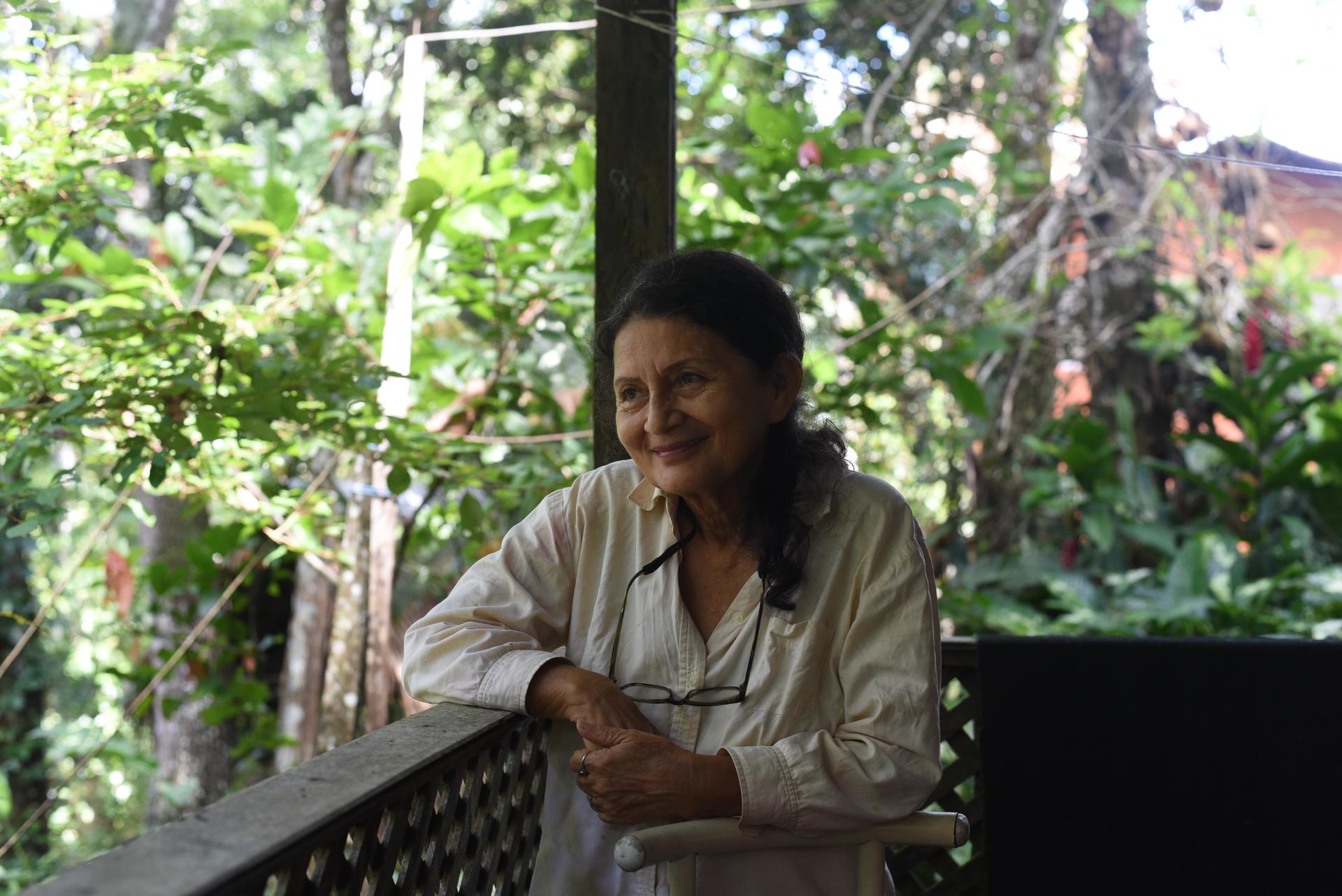
Lily de la Torre in her farm located in the Ucayali region, Peru. All photos by: Elizabeth Ramirez
Today, in the middle of her farm, with no shade and where only the green of the rainforest and the blue of the sky can be distinguished, Lily has established a soil restoration plot with the hope of planting organic cacao in the future and revive a land that for years was trampled by grazing cattle.
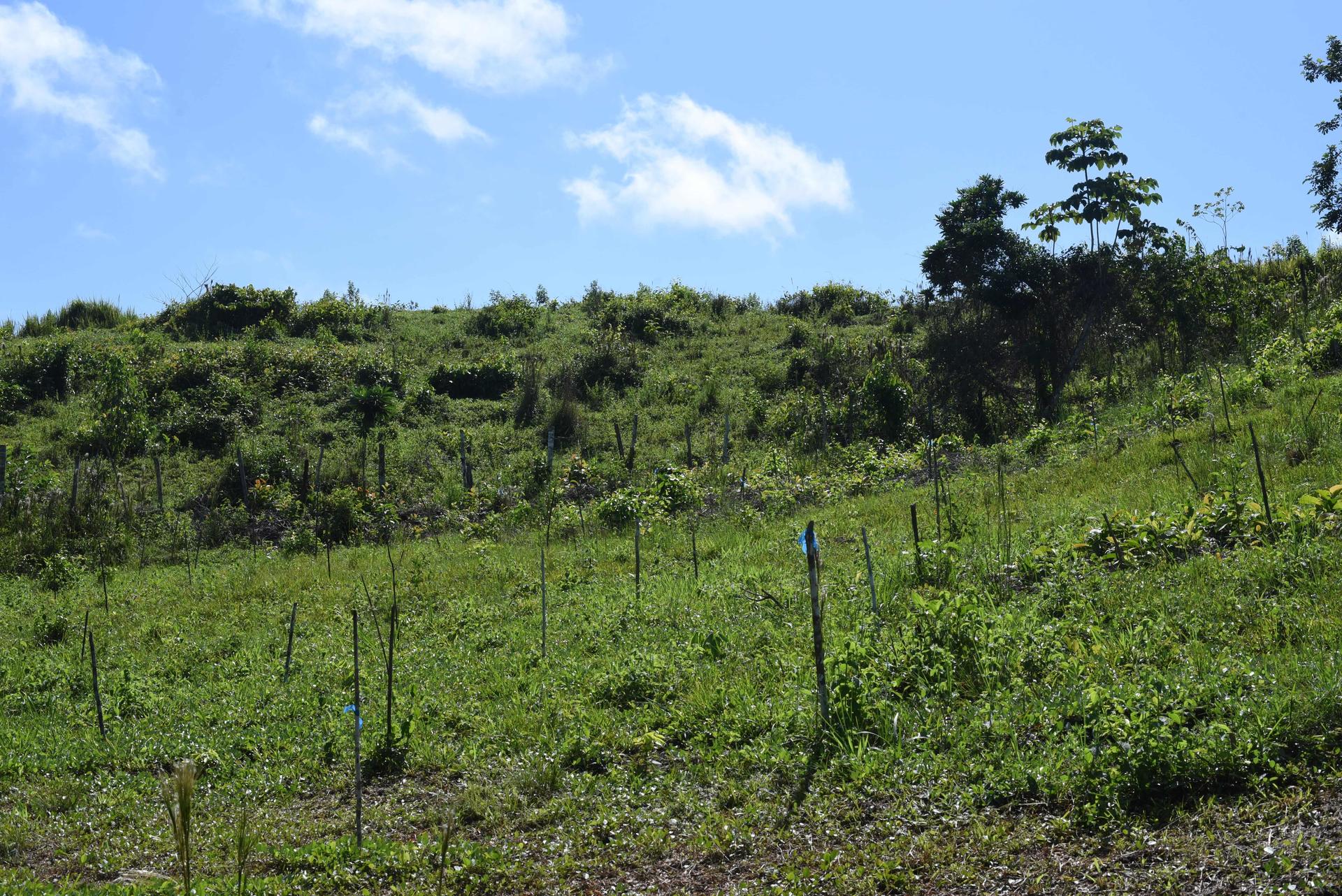
Soil restoration plot of the Agroecological Regenerative Cocoa (ARC) project.
The bitter taste of deforestation in Ucayali
The Ucayali region has been one of the most affected by deforestation. According to a report by the Geobosques portal, 47,267 hectares of forest were lost in 2020, affecting more than 20,000 cacao producers in the region. To address this situation, the Alliance of Bioversity International and CIAT has been working on the implementation of urgent measures to stop deforestation and promote sustainable practices in the Ucayali region. Through the adoption of planting and harvesting approaches that promote the conscious use of natural resources, the promotion of agroforestry systems, and engagement with the private sector to encourage reforestation, they seek to mitigate the negative impacts brought about by agriculture in the Peruvian Amazon.
There are numerous practices related to this new form of agriculture, all of them aligned with the same objective: to reconcile with nature in an increasingly challenging agrifood context, through the efficient use of natural resources.
The sweet revolution of organic cacao
Since 2019, organic cacao cultivation has gained great popularity among producers in Peru, positioning the country as the second largest producer of organic cacao worldwide. One of the institutions that has worked with organic cocoa producers in the Ucayali region is the Colpa de Loros Cooperative. Since 2015, this cooperative has partnered with French chocolatier Kaoka, in which more than 500 producers benefit by exporting organic cocoa to France and implementing responsible farming on their farms.
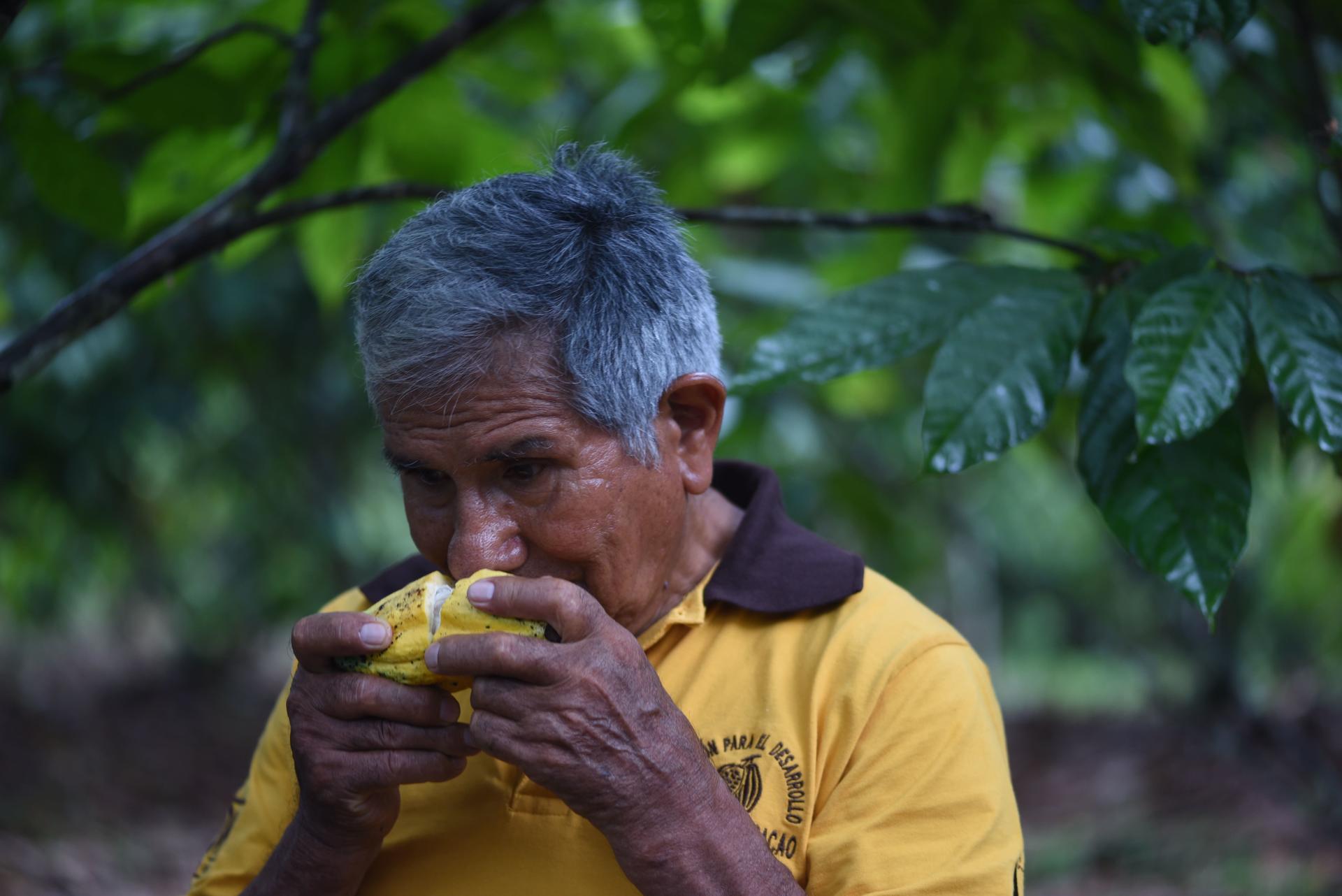
The Alliance of Bioversity and CIAT has worked hand in hand with the Colpa de Loros cooperative and Kaoka on three projects aimed at promoting sustainable production and the conservation of fauna and flora through practices that allow cacao production to continue without causing irreversible damage to nature. According to Yovita Ivanova, Alliance researcher and leader of the Agroecological Regenerative Cocoa (ARC) project, this triple partnership, which brings together researchers from different countries, private sector and cooperative, is of vital importance as it allows harvesting the best of scientific and technical knowledge with the practical experience and local knowledge of producers such as Lily, who bank on a more sustainable future in the Ucayali region.
One of the implementing partners of the ARC project in Peru has been ICRAF-CIFOR, implementing cocoa plots under agroforestry systems to promote the rehabilitation of degraded soils.
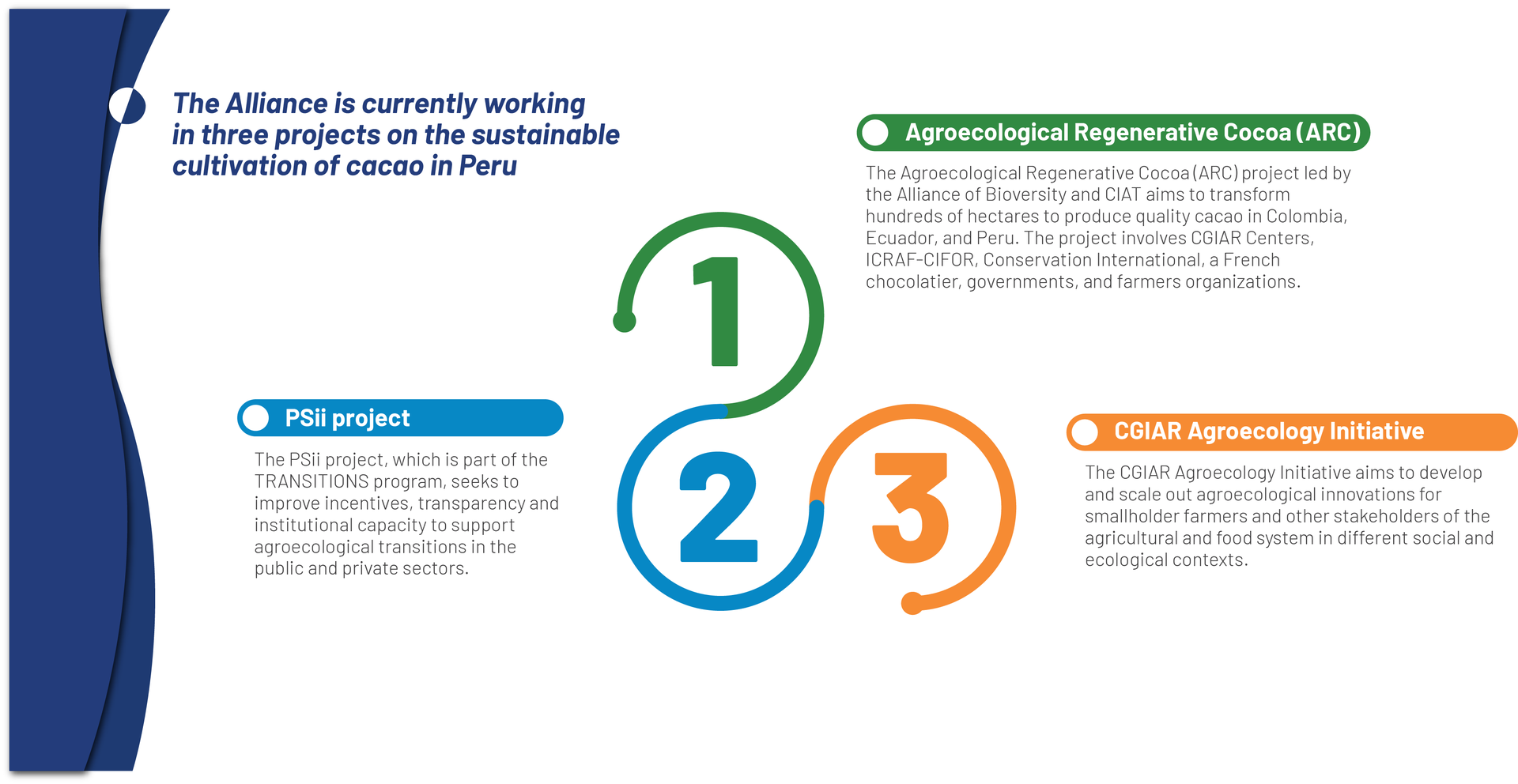
Ernesto Parra y Guerra, Manager of the Colpa de Loros Cooperative, shares his perspective on the valuable partnership with chocolatier Kaoka and the positive impact of research on cacao farming, highlighting how this collaboration has benefited producers and is laying the ground for a new sustainable business model in the cacao industry.
Miriam Guerrero, Kaoka's representative in Peru, talks about the story behind the partnership between the Colpa de Loros Cooperative and the renowned French chocolatier Kaoka.
Planting more than just cacao
Another farmer who is banking on soil restoration is Raúl Luis Príncipe, a farmer who, together with his wife Florinda, has decided to plant more than just cacao on his plot. A year ago, Raul joined the Agroecological Regenerative Cocoa project, and decided to implement in his farm "La Helenita" a plot where little by little he has been sowing hope, and has made peace with the land to, according to him, give back a little of what he has taken from it. In the future, like Lily, Raúl hopes to harvest organic cocoa.
Learn his story in the following video.
Restoring soil that has suffered for so many years is a process that requires patience and dedication. This is where agroecology, which emerges as an alternative type of agriculture to conventional practices, becomes an approach that allows food to be produced without causing further damage to the environment. The CGIAR Agroecology Initiative and the Private Sector Incentives and Investments (PSii) project of the Agroecological Transitions program, led by Alliance of Bioversity International and CIAT, work to promote more sustainable agricultural practices that improve the way food is grown.
In this regard, the PSii Project is collaborating with Kaoka and Colpa de Loros to implement a digital monitoring system that will allow chocolate consumers to verify the origin of the cacao and check agroecological conditions on these farms. This transparency system aims to increase consumer interest by demonstrating that agroecology, together with the soil conservation practices promoted by ARC, can be profitable for the private sector. In this way, it encourages the adoption of sustainable practices and drives positive change in the way food is produced and consumed.
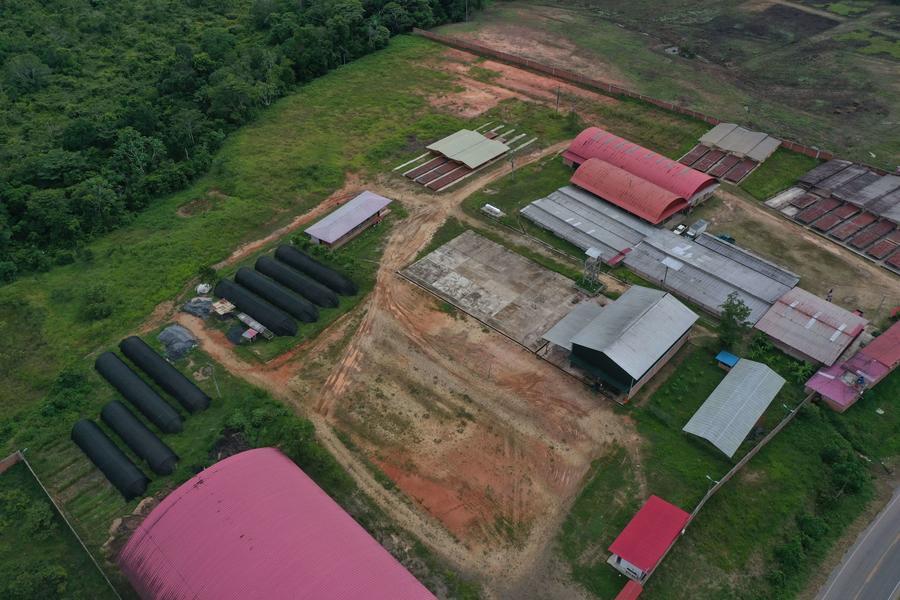
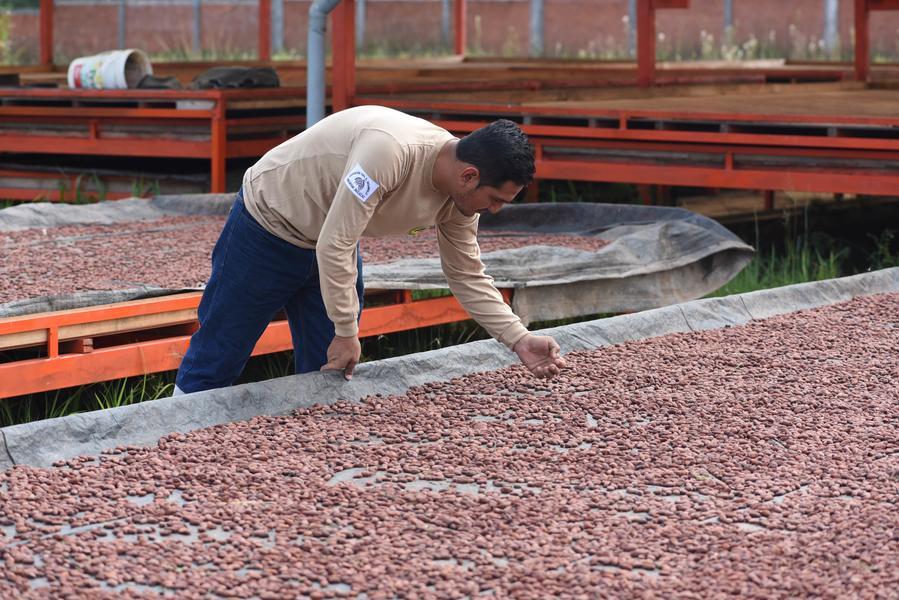
Soil restoration is one of the 13 practices covered by agroecology, which contribute to achieving sustainability in food systems. Among these practices, the implementation of agroforestry systems also stands out. These systems consist of combining the planting of trees with agricultural crops and animal husbandry, allowing for a more efficient and sustainable soil use.
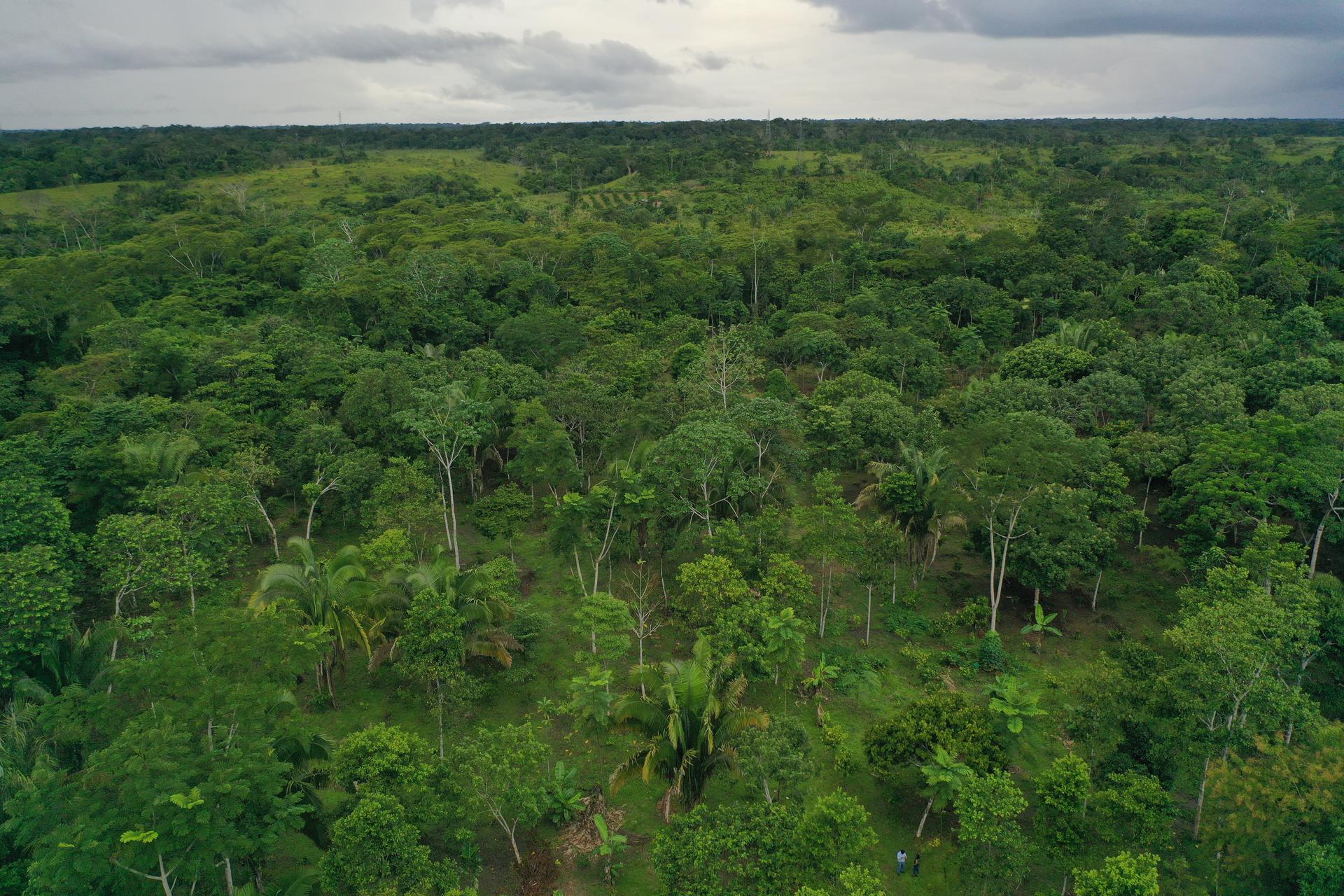
Agroforestry systems in the Ucayali region.
"Implementing agroforestry systems in degraded areas is identified as a productive alternative that improves soil health and contributes to a greater diversification of farmer's income," said Piedad Pareja, Alliance senior researcher and Peru focal point for the ARC project.
The Alliance, in its commitment to promote collaboration between projects with similar approaches, recently organized the Synergies workshop between the ARC, PSii and the CGIAR Agroecology Initiative projects. The workshop aimed to bring together researchers, representatives of the Colpa de Loros cooperative and the private sector represented by the company Kaoka to present the progress of the projects and their impact on farmers in terms of agroecological practices and agreements on soil conservation and restoration.
"Joining efforts between Alliance projects that work with the same actors or territory can be a great opportunity to achieve a broader and more comprehensive impact," said Gabriela Wiederkehr-Guerra, Coordinator and Peru Focal Point of the CGIAR Agroecology initiative.
With these projects, it is hoped that more producers like Lily and Raul will join in the effort to restore the soil on their plots and make peace with the land, allowing them to harvest not only organic cacao, but also a sustainable future.
